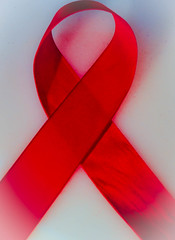 |
| AIDS Awareness (Photo credit: sassy mom) |
HIV infections among drug users in Greece jumped more than 20-fold in fewer than two years, fueled by a lack of needle exchange and methadone programs, according to the European Centre for Disease Prevention and Control.
The ECDC, the European Union’s agency that monitors infectious disease, reported 314 cases of the AIDS-causing virus among injecting drug users in the first eight months of this year. That compares with 208 for all of 2011 and no more than 15 cases a year from 2001 to 2010, the agency said.While the extent to which Greece’s economic crisis has contributed to the outbreak is unclear, austerity measures and high unemployment may fuel an acceleration in new infections in Athens and beyond the capital unless programs to provide methadone, clean needles and condoms are expanded, the Stockholm-based ECDC said in the report.“The current economic turmoil will continue to have adverse effects on HIV prevention not only in Greece, but also in other parts of Europe,” the ECDC said. “The cost of prevention to avert HIV infections will be less than the provision of treatment to those who become infected.”
Waiting lists for methadone programs in Athens were more than seven years long in August 2010, and about seven syringes were distributed per drug user per year, according to the report. Programs implemented by Greece’s health authorities since the outbreak began have reduced the waiting list to fewer than four years and increased the number of syringes to 45 per user per year, the ECDC said. Still, that’s well below the international standard of 200 needles, according to the report.
Care Capacity
“There are currently concerns that the HIV clinical care capacity in Athens has already reached a ceiling due to the increased number of HIV cases detected in 2012,” the ECDC said. “The response to the HIV outbreak by public authorities and NGOs is being managed in the context of social uncertainty, with exceedingly scarce financial resources.”Greece signed a three-year agreement with the International Monetary Fund, European Commission and European Central Bank in May 2010 that stipulated the nation cut health spending to no more than 6 percent of gross domestic product from 9.7 percent.
Euro-area finance ministers this week drew up a debt-relief agreement for Greece that reduced the rates on bailout loans and suspended interest payments for a decade. The government in Athens was also given more time to repay its debt and will be able to buy back its bonds.Even with those measures, Greece’s debt load, which will peak at almost twice the size of its economy in 2014, remains unsustainable, Moody’s Investors Service said yesterday. The chance of a default is “high,” Moody’s analysts wrote.
To contact the reporter on this story: Simeon Bennett in Geneva at sbennett9@bloomberg.net - To contact the editors responsible for this story: Phil Serafino at pserafino@bloomberg.net; Reg Gale at rgale5@bloomberg.net
Source - http://www.youtube.com/watch?feature=player_embedded&v=G5PwxNt5h2Y




